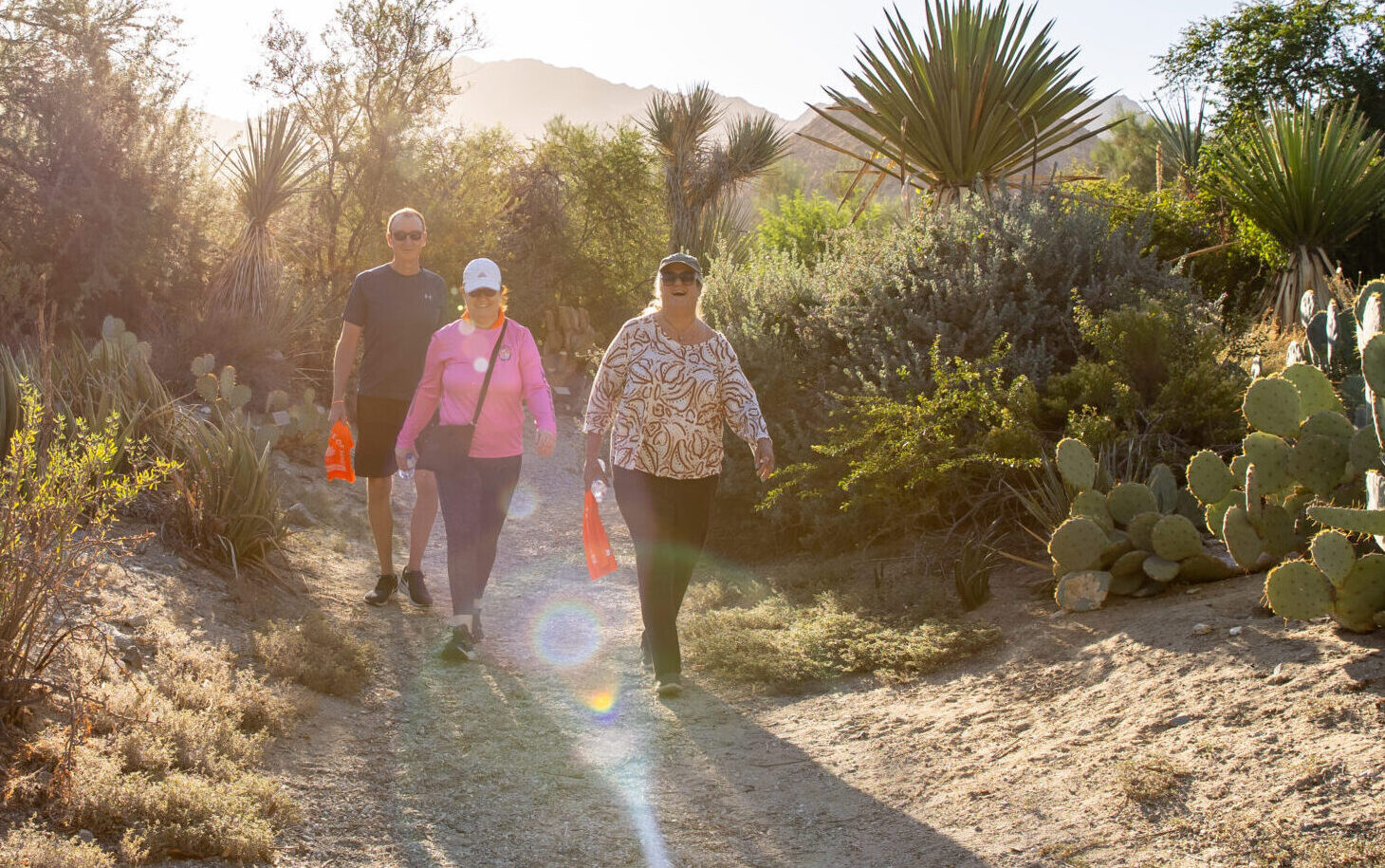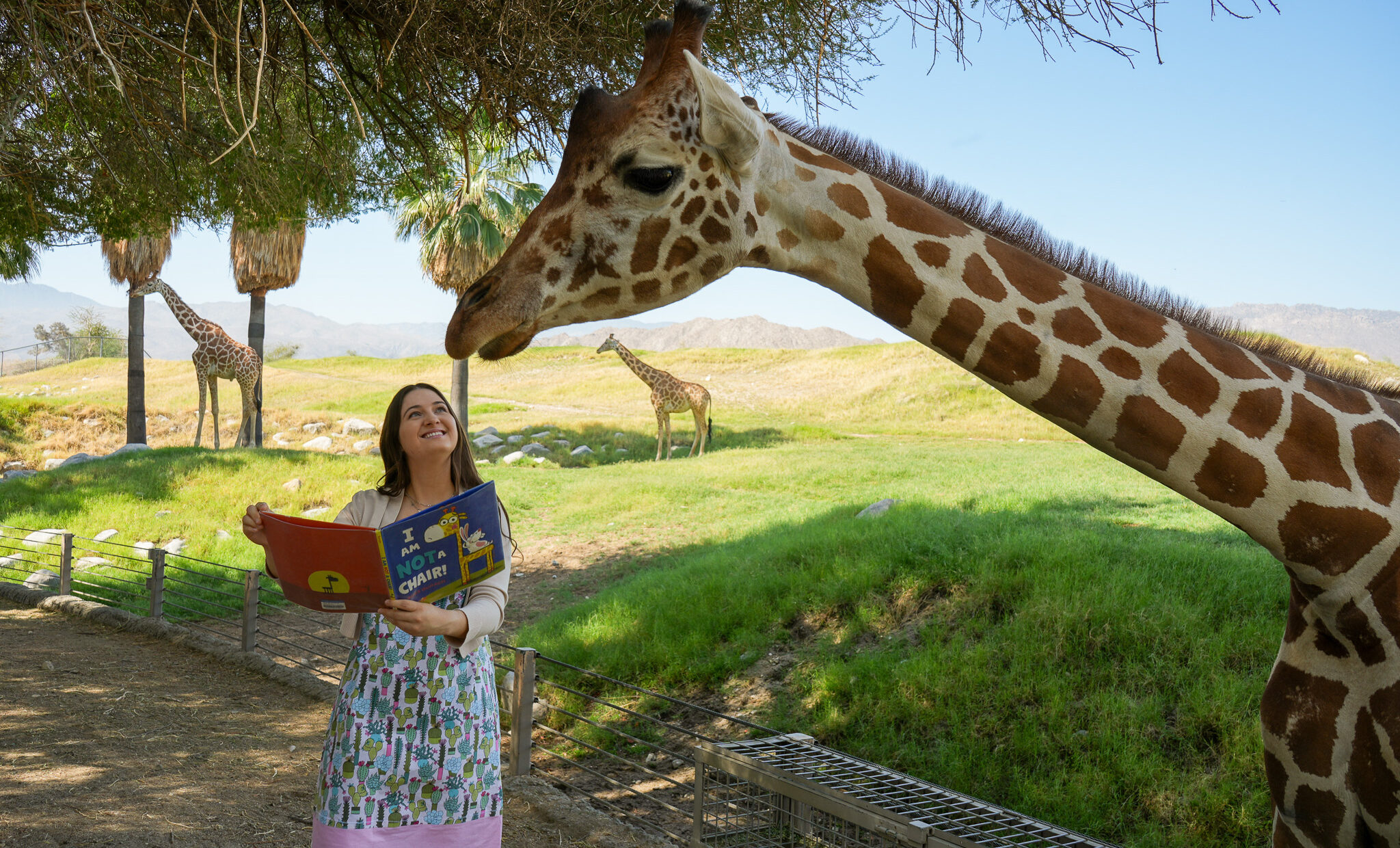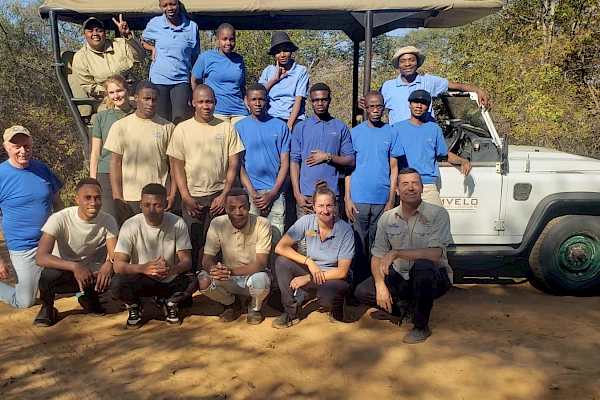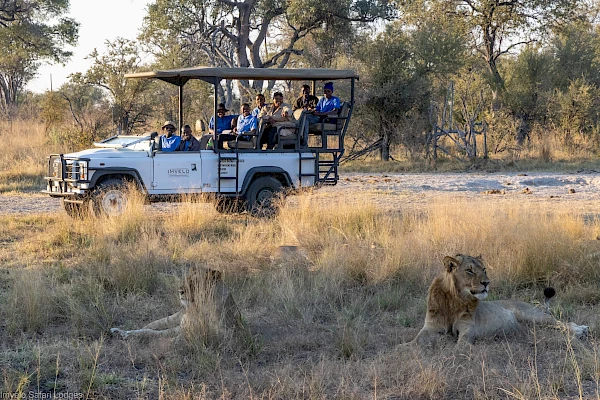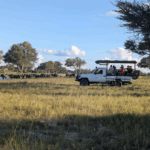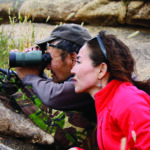As we jostle and shimmy along the rutted and potholed dirt path that passes for a road here in rural Zimbabwe, the magic hour of sunlight, smiling and waving children running to greet us, and the warm afterglow of a productive day of surveying behind us combines to fill me with joyful accomplishment. In the seated rows behind me, our team of Zimbabwean students sing and joke with each other. We are all quite happy with ourselves and this wonderful day in this beautiful country.
We are almost done with our Building Community Conservation Success (BCCS) workshop here at the Imvelo Safari Lodges, who have been our generous host and benefactor. We have only tomorrow morning with our 11 students and two faculty from Lupane State University, and then we will have happily completed our second of the three workshops that myself and Katie Shaw, Social Conservation Scientist at The Living Desert, are here to teach in Zimbabwe this month.
We have changed how we normally do the Building Community Conservation Success social science training workshops here with this class of University students. We have decided to take some time to conduct the surveys that we have spent the last 3 days creating, a departure from our usual classroom-based workshops.
One group of students created and were implementing one survey to understand the unmet human needs that communities are facing. The other group created and was implementing a survey on the human-wildlife conflicts the communities endure. To assess the feasibility of establishing a possible rhino reintroduction project, we are assessing these two topics. They will inform how Imvelo may go forward with the rhinos in the three villages in which we worked today.
The students are all young, currently in their the first or second years of their undergraduate degree in wildlife management from Lupane State University. As such, none have done anything like what we are asking them to do. However, after a rough day and a half, they have really risen to the many challenges that we have posed to them. Katie and I are impressed and pleased with all they have accomplished. They feel the exact same, judging by the many loud, happy discussions during the drive back to camp.
The next morning we compiled and analyzed the data, learning that the community would definitely benefit by and are supportive of the rhino reintroduction project. The surveys reported that the benefits the project would bring are highly desired and needed by the three villages, including employment, improved healthcare, better educational resources, a protective fence to reduce human-wildlife conflicts, and better responses from agencies who can help cope with these conflicts.
Over a celebratory closing cigar after a class had completed, Mr. Mark Butcher, founder and leader of Imvelo Safari Lodges, excitedly learns about the preliminary data that we collected. He is clearly encouraged and says that he wants to continue these studies.
